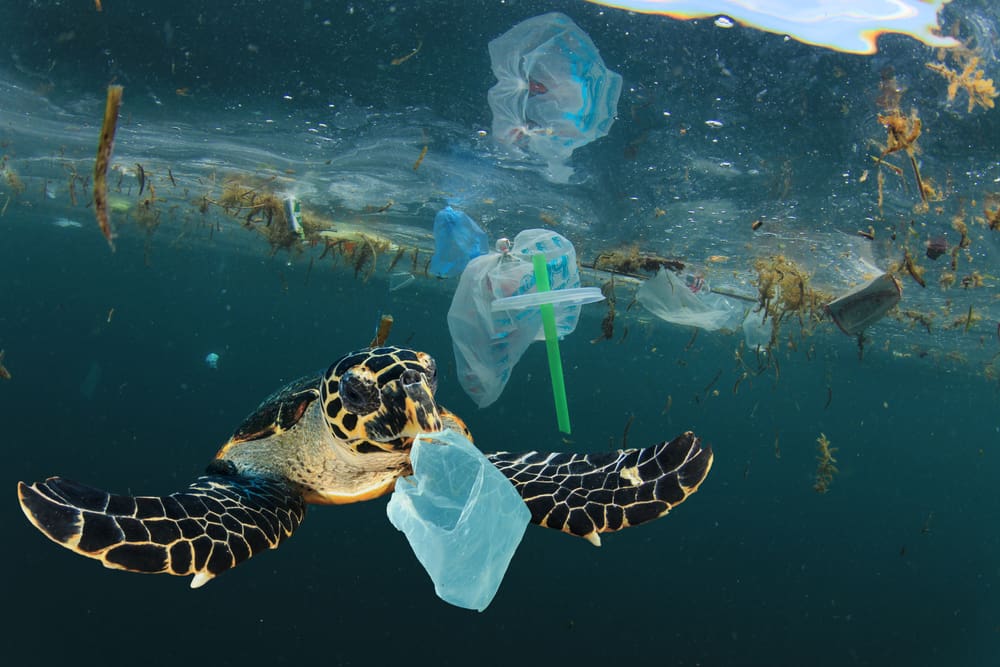
Could something as small as a plastic straw really have an impact on our planet? The truth is that, while seemingly innocuous, single-use plastic straws contribute significantly to marine debris, threatening ocean wildlife and entire ecosystems in the long term. In response to this crisis, more and more focus has been placed on marine biodegradable straws. These innovative products can reduce our environmental footprint and protect marine life by breaking down naturally in aquatic environments without leaving behind harmful by-products.
The Impact of Plastic Straws on Marine Life
Traditional plastic straws have become one of the most visible symbols of the broader plastic pollution crisis affecting our oceans. Each year, millions of plastic straws end up in waterways, contributing to the estimated 8 million metric tons of plastic that enter the oceans annually. Many marine animals mistake plastic straws for food, leading to accidental ingestion. Once consumed, these straws can cause blockages in their digestive systems, malnutrition, and death. Turtles, for instance, are often seen swallowing plastic straws, possibly mistaking them for jellyfish, their primary food source.
Marine biodegradable straws offer a sustainable, ocean-friendly alternative to harmful traditional plastic straws. Designed to break down naturally in marine environments, these straws provide several crucial benefits that can help combat the current plastic pollution crisis. To better understand the utility of these special straws, we will first need to understand biodegradability as a concept.
What Does “Marine Biodegradable” Mean?
Marine biodegradable means that when these materials are discarded into the ocean, they are engineered to decompose into natural substances, ideally within a short period, reducing their environmental footprint. Unlike conventional plastics that can take hundreds of years to decompose, marine biodegradable products are made from organic materials such as polyhydroxyalkanoates (PHAs), which are produced by microorganisms through fermentation. These materials are specifically formulated to break down in the conditions of ocean and seawater. The process of biodegradation typically involves natural microorganisms like bacteria and fungi, which feed on the organic materials in marine biodegradable products.
With concern for the environment on the rise, many businesses and consumers are exploring eco-friendly options; however, these options may not always be fully marine biodegradable.
Not All “Eco-Friendly” Straws Are Ocean-Friendly Straws
Other eco-friendly straw options exist in the market today that do provide advantages over traditional plastic straws, but they likely won’t meet all your business’s needs and won’t be marine biodegradable.
Recovered Ocean-Bound Plastic Straws
Benefits:
- Sustainable Material: These straws help reduce plastic pollution by repurposing waste that would otherwise end up in the ocean.
- Contributing to Cleanup Efforts: By using ocean-bound plastic, consumers are promoting efforts to clean up ocean-adjacent areas and reducing the environmental impact of marine litter.
Limitations:
- Not Biodegradable: Despite being made from recycled materials, they are not marine biodegradable straws and can potentially add to waste streams if not properly disposed of or recycled. In turn, they could re-enter the marine environment, posing the same risks to marine wildlife as traditional plastic products.
- Energy-Intensive Processing: The process of collecting, cleaning, and repurposing ocean-bound plastic can be energy-intensive and may not always be as eco-friendly as materials that require less processing.
PHA Straws (Polyhydroxyalkanoates)
Benefits:
- Plant-Based: Similar to marine biodegradable straws, PHA straws are made from renewable resources like plant matter.
- Temperature Resistance: They can withstand both hot and cold beverages.
Limitations:
- Industrial Composting Requirement: PHA degrades at natural temperatures in a variety of environments, even on the side of the road or on the beach, without leaving harmful microplastics behind.
- Limited Marine Decomposition: PHA straws break down in ocean and beach conditions, making them effective against plastic pollution in marine environments.
While ocean-friendly straws such as recovered plastic and PHA straws contribute significantly to reducing plastic consumption, PHA straws best target the unique challenges posed by marine environments.
Turn to UrthPact for Sustainable Straws
At UrthPact, we are dedicated to providing high-quality sustainable straws that positively impact the planet. With each passing year, the plastic crisis becomes more and more dire, so it’s essential to embrace the future of sustainability with biodegradable and recyclable straws. UrthPact offers sustainable straws in multiple varieties that can be customized and ordered in bulk for your business, convenience store or restaurant.
Contact us today to make a difference for our oceans and our future.



